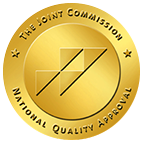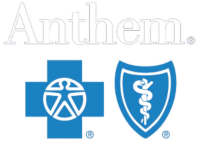
The Dangers of Mixing Zoloft and Alcohol




What is Zoloft?
Zoloft is a drug that is used to treat different medical issues, such as depression, anxiety disorders, post-traumatic stress disorder, and obsessive-compulsive disorders. Zoloft’s intention is to improve daily functions for people suffering from these disorders. Zoloft improves mood, sleep, and energy. It also decreases symptoms of the disorder, such as fear and anxiety.
Zoloft is an SSRI or a selective serotonin reuptake inhibitor. This class of medicines is typically used to treat depression and anxiety. It is also used for other mood disorders such as cyclothymic disorder and even certain instances of bipolar disorder. Some of these disorders may be comorbid, meaning that a person could have two or more diagnoses that Zoloft, as well as other SSRIs, can treat.
SSRIs work by increasing the serotonin neurotransmitter (a chemical messenger that delivers certain signals between nerve cells in the brain, or neurons). Serotonin is a neurotransmitter that increases feelings of happiness and elation in the brain.
SSRIs also block the reuptake (or taking in again) of serotonin into the brain neurons. This makes transmitting serotonin through neural pathways much easier. SSRIs are called selective because they mainly affect serotonin, not other neurotransmitters. You can take Zoloft in either tablet form or as a liquid, depending on what your doctor prescribes.
The Side Effects of Zoloft
Zoloft (or sertraline, which is its generic name) is meant to help patients operate better in their normal lives. While there are side effects, the benefits can outweigh the risks of the medicine.
Check with a doctor to make sure that this medicine is the right one for them. Zoloft might not work with any other medications a patient may be taking. There are risks that come with taking the medication. Some side effects include drowsiness, insomnia, dry mouth, and appetite changes. More serious symptoms include manic behavior, suicidal thoughts, kidney failure, and liver failure, among others.
Yet, many of these side effects are uncommon. If someone has these side effects, they should contact their doctor as fast as they can and seek medical help.
The Effects of Alcohol
Alcohol is a drug that is commonly used by many all over the world. At least 80% of people living in the United States state that they have tried alcohol once in their lives. 25% of that 80% identify as alcoholic. Alcohol is typically seen as a depressant that affects the central nervous system, specifically the communication pathways from the brain to the rest of the body. It travels quickly through the bloodstream and can affect major organs, including the kidney.
Alcohol can be extremely harmful to the body. After entering the bloodstream, alcohol travels to the liver for metabolizing. The liver can only process small amounts of alcohol, so large quantities can hurt the liver and cause diseases such as cirrhosis of the liver, among others. Cirrhosis symptoms include fatigue, edema (or swelling in the legs as well as the feet and ankles), jaundice (the yellowing of the skin and eyes), weight loss, ascites (when fluid gathers in the abdomen area), and loss of sex drive.
It also has an impact on how the brain functions. There are five stages of alcohol toxicity: sobriety (low level intoxication), euphoria (a feeling of happiness; also known as being “tipsy”), excitement (stage where the person starts to become agitated), confusion (outbursts and loss of coordination), and stupor (unable to stand or walk; no longer aware of surroundings). If drinking continues, it could lead to a coma, or even death.
Alcohol is often not recommended for people who suffer from depression or people who are on medication, especially anti-depressants. Some side effects of alcohol consumption while depressed include anxiety, feeling worthless or sad, fatigue, or insomnia. Others include irritability, loss of appetite, and possible weight gain or weight loss.
How Do Zoloft and Alcohol Interact?
With all the above information, one question remains: if someone were to take both Zoloft and alcohol at the same time, how do they interact? Alcohol itself is a depressant, which can already add to a patient’s feelings and/or mood. The Food and Drug Administration (FDA) itself advises against mixing Zoloft with alcohol.
While there are people who have not had any bad effects with taking Zoloft and alcohol together, the risks far outweigh the benefits, if there are any at all. Some of the more damaging Zoloft and alcohol interactions include:
- Drowsiness
- Nausea
- Headaches
- Anxiety
Serious side effects can include blackouts and extreme intoxication since alcohol can speed up the effects of Zoloft. Many who take Zoloft often have addiction issues themselves, which can lead to more dire consequences.
Taking these two together can lead to a Zoloft and alcohol overdose. Alcohol can worsen depression symptoms, those who take Zoloft and alcohol together can have suicidal thoughts, proving fatal for the person mixing the two drugs.
The Problem With Mixing Zoloft and Alcohol
Addiction is a serious disease. Also known as substance use disorder (SUD), addiction can severely impair a person’s life. People can build up resistance to these substances and must use more in order to gain the same feeling they had when they first took the substance.
People with SUD usually focus on a certain substance. Alcohol tends to be a common one. Others include tobacco, marijuana, and some illegal substances such as cocaine and heroin. In America, including alcohol, there are 165 million people, or 60.2% of people 12 years and older who are addicted to a particular substance.
When a person becomes addicted to substances, their ability to function in everyday society is hindered by their need to satisfy their craving. They cannot resist the “pull” of their substance of choice. The user may know that the substance is doing damage to their body, but the benefits of taking the drug far outweigh the risks of continual drug abuse.
How Can Someone Tell If a Person Has SUD?
There are many telling symptoms for others to recognize a drug user. Some may have issues with their thinking process and behave oddly around others. Substances can change the brain’s functionality and framework. It can also cause extremely strong cravings for certain things, which can change a person’s personality completely when intoxicated.
Substance abuse can cause people to move in ways they would never have done when they were sober. Some functions of the brain that substance use disorder can impair include “judgment, decision making, learning, memory, and behavioral control.”
If a drug user continues to use their preferred substance, it can have severe changes in both the body and the brain. Many of these changes, including impaired cognition and loss of limbs/body parts can last for an extended amount of time, even if the substance abuse has stopped.
Cocaine users may lose function of their noses. Heroin users may have collapsed veins. Smokers typically damage their lungs.
Many of these drugs cause something called intoxication, which is a feeling of “intense pleasure, euphoria…and other feelings that are caused by the substance.” Most symptoms are different for each substance as well as different for each person.
Where Can You Find Help?
Dealing with a friend or family member that may have a drug abuse problem can be hard for the people involved. Addiction is not an easy thing to admit to oneself, let alone others. Addicts may feel that drugs like alcohol can help them more than speaking to someone. Adding an anti-depressant like Zoloft can make the symptoms worse and lead to bad results.
At New Method Wellness, we add another dimension to dual diagnosis treatment, and that is the integration of holistic therapy, such as massage/acupuncture therapy, equine therapy, and art therapy. As addiction therapists and substance abuse counselors work with clients to treat the substance use disorder and the co-occurring illness associated with it, holistic therapy adds meaning to life after treatment and sustains long-term recovery. Our 3:1 staff-to-client ratio ensures client success after treatment, as evidenced by our Extended Aftercare program.
For more information about New Method Wellness’s treatment programs, call (866) 951-1824
TAKE THE FIRST STEP
From all of us at New Method Wellness co-occurring treatment center, we wish you peace and serenity in knowing that you or your loved one will get the necessary help.
ACCREDITED BY:




